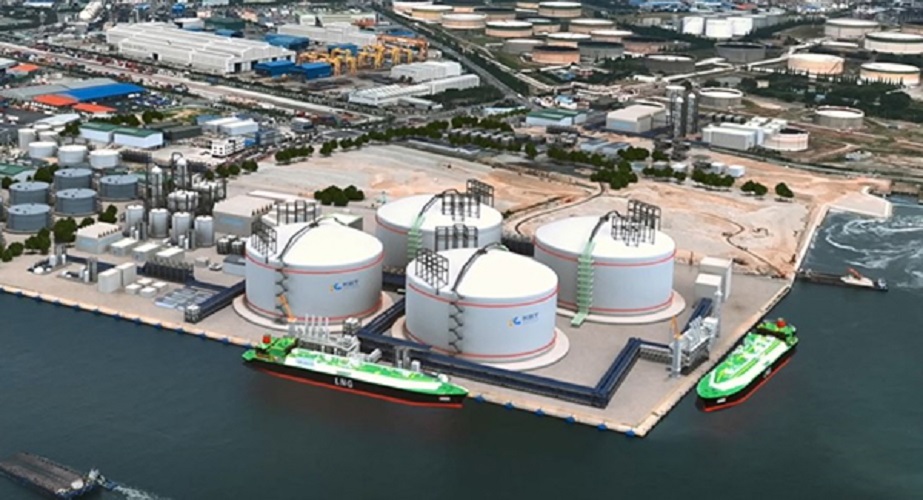South Korea’s SK gas Co. is preparing to enter the liquefied natural gas bunkering market through a terminal construction project the company is participating in.

SK gas and other companies are building Korea Energy Terminal, a 1.2 trillion won ($919 million) infrastructure project, in Ulsan, southeast of Seoul. The terminal, an all-in-one infrastructure for LNG import, storage and supply, would be the LNG bunkering pier in the country.
LNG bunkering, which supplies LNG as fuel to vessels, is a new business approach aimed at the rapidly growing number of vessels using environmentally-friendly fuels around the world. The terminal can accommodate large-scale bunkering vessels of up to 10,000 deadweight tons for loading and reloading LNG. SK gas will introduce a ship-to-ship bunkering system, in which a bunkering vessel receives LNG from an LNG tank and supplies it to another ship at sea.
SK gas engaged in the import, export, storage and distribution of liquid petroleum gas is currently participating in the construction of the terminal located in the northern port of Ulsan.
The surge in vessels powered by eco-friendly fuel worldwide has made LNG bunkering a new business targeted by many countries. The International Maritime Organization has set a goal to reduce greenhouse gas emissions from ships by 50 percent by 2050 and recently strengthened regulations on the sulfur emissions.
With the popularity of LNG vessels, demand for LNG bunkering is also increasing. Demand for LNG bunkering is expected to grow at an average annual rate of 30 percent to 8.39 million tons in 2026, from about 2.9 million tons in 2020. If this trend continues, the LNG bunkering market will be worth 25 trillion won, with a demand of about 30 million tons by 2030.
Major ports worldwide are actively investing in LNG bunkering to seize opportunities. The world’s largest fuel bunkering port Singapore and China’s top container port Shanghai, are already offering LNG bunkering services. Currently, ships calling at Korean ports have to rely on Singapore and Shanghai because of the lack of proper bunkering infrastructure in Korea.
Ulsan is considered a favorable location for the bunkering business due to its close proximity to Busan, the world’s seventh-busiest container port. The city also has steady LNG demand for the trial runs of LNG vessels and ships used to export cars, as well as for the delivery and departure of new ships from shipyards. It can also accommodate some of the demand from Pohang and Gwangyang, which have large cargo transportation needs, and Geoje, where large shipyards are located, is also expected to rise.
Source: Pulse